Matched Python Tutorials and Topics
Python Standard Library
Explore Python's standard library, modules such as os, json, re, ftplib, imaplib, threading, pickle, socket, random, secrets and many more.
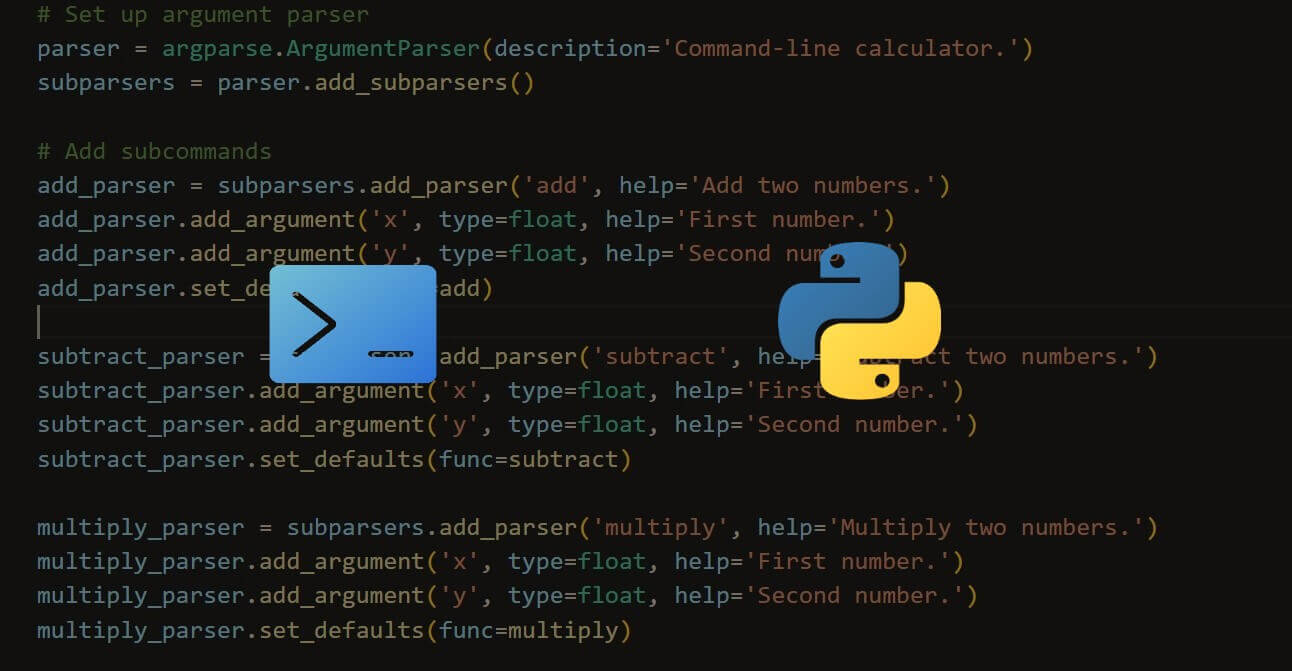
How to Use the Argparse Module in Python
Master the argparse module in Python with this comprehensive tutorial, covering command-line applications, argument parsing, real-world examples, integration with other libraries, and best practices to create user-friendly interfaces and powerful command-line tools.

Keyboard module: Controlling your Keyboard in Python
Learn how to use keyboard module in Python to take full control of your keyboard such as hooking global events, registering hotkeys, simulating key presses and releases and much more.
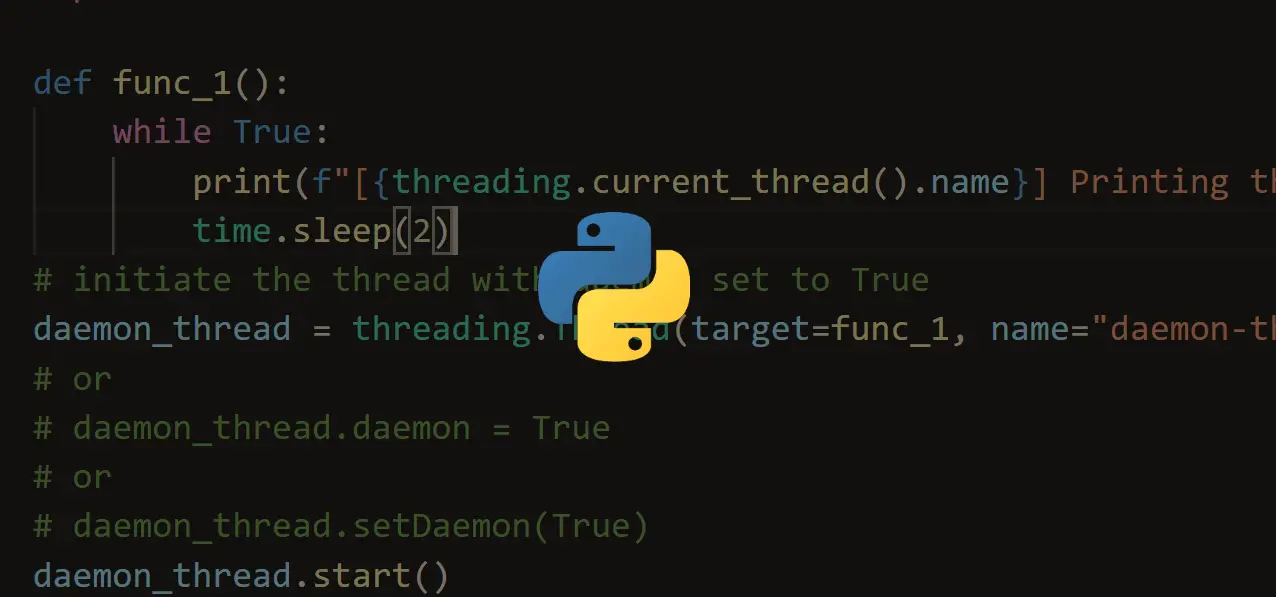
Daemon Threads in Python
Learn what daemon threads are with toy examples as well as real world examples and how to set daemon threads in Python
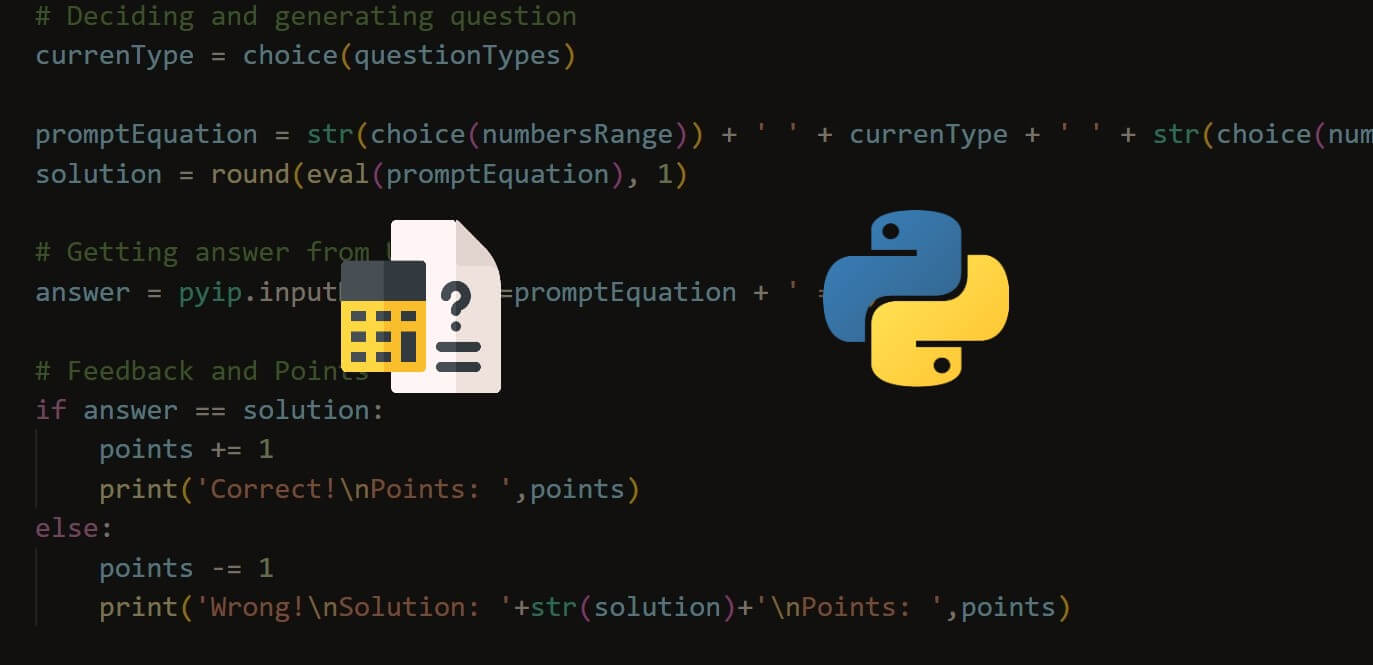
How to Make a Simple Math Quiz Game in Python
Learn how to make a simple math quiz game in Python utilizing the PyInputPlus module to verify the user input.

How to Implement the Vigenère Cipher in Python
Step-by-step guide to implementing the Vigenère Cipher in Python. Understand its mechanism, strengths, and vulnerabilities, with practical examples for encryption and decryption.
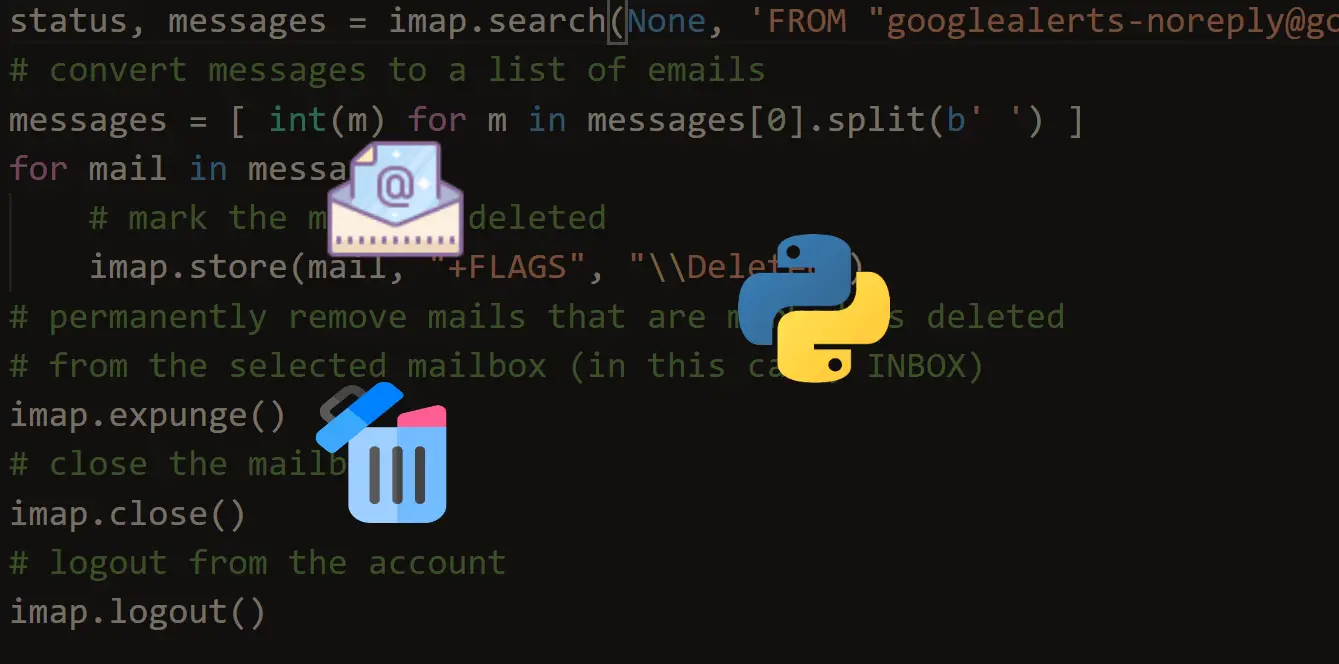
How to Delete Emails in Python
Learn how you can use IMAP protocol to delete specific mails in your email account in a selected mailbox using the built-in imaplib module in Python.
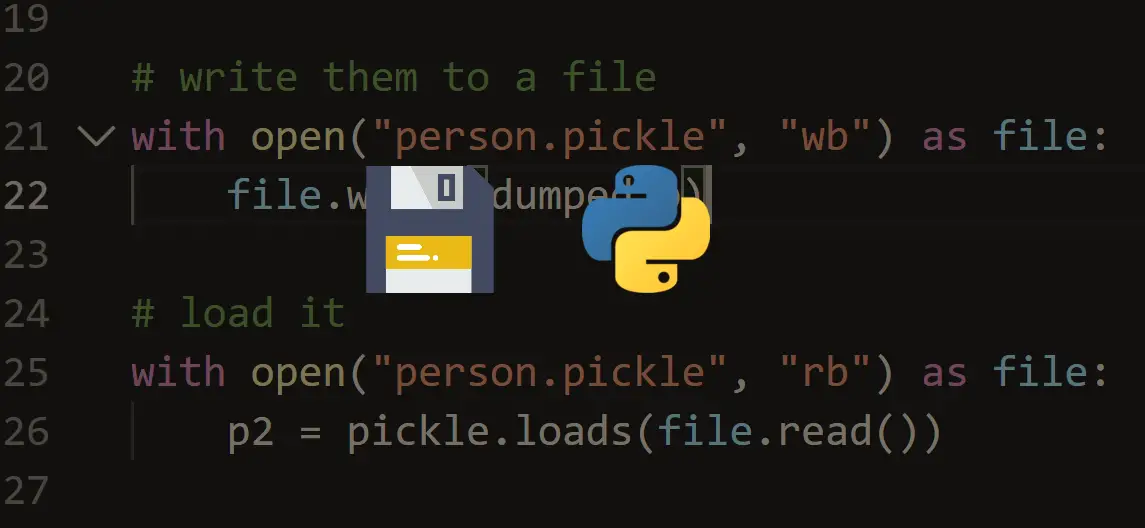
How to Use Pickle for Object Serialization in Python
Using Python standard library pickle module to save (pickle) and load (unpickle) any type of object in Python.

How to Perform IP Address Spoofing in Python
Master IP spoofing with Python: Dive into crafting fake IP addresses to test network security. Utilize Scapy and Faker in a hands-on tutorial to send spoofed ICMP packets, complete with practical examples and step-by-step instructions.
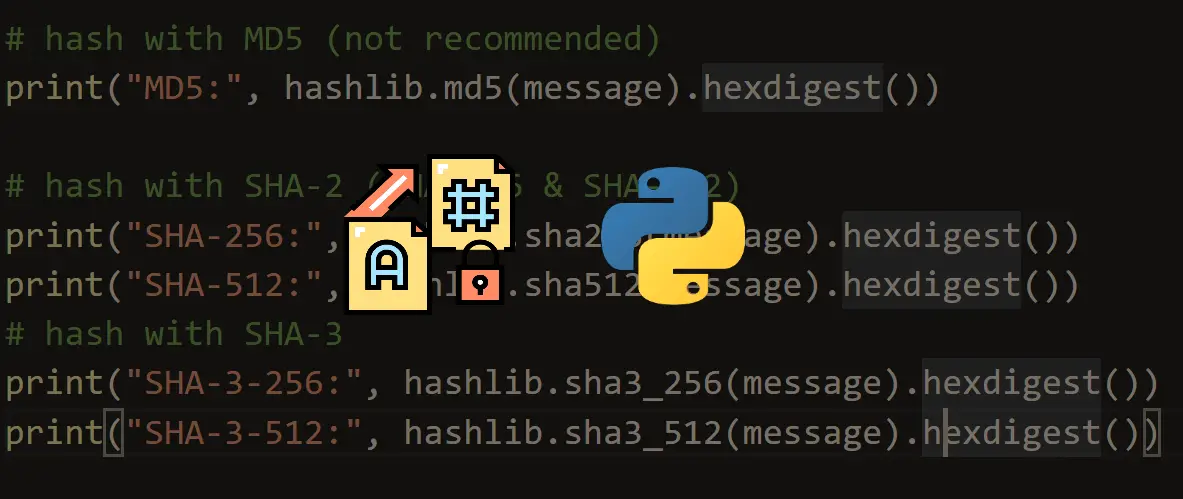
How to Use Hashing Algorithms in Python using hashlib
Using different hashing algorithms such as SHA-2, SHA-3 and BLAKE2 in Python using hashlib built-in module for data integrity.

Top 9 Python Libraries For Data Scientists and Machine Learning Engineers
Top python libraries and modules that every data scientist and machine learning engineer must know, learn and master.
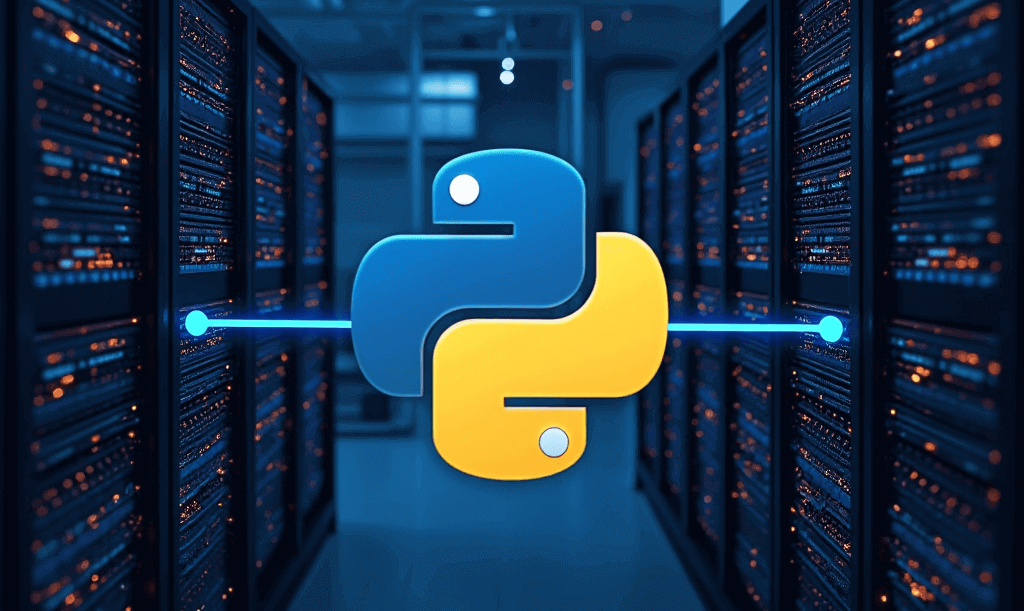
How to Build a TCP Proxy with Python
Learn to build a TCP proxy in Python to intercept and analyze real-time data flow between client and server. Ideal for debugging, protocol analysis, and understanding network communication, this guide provides step-by-step implementation and practical examples.
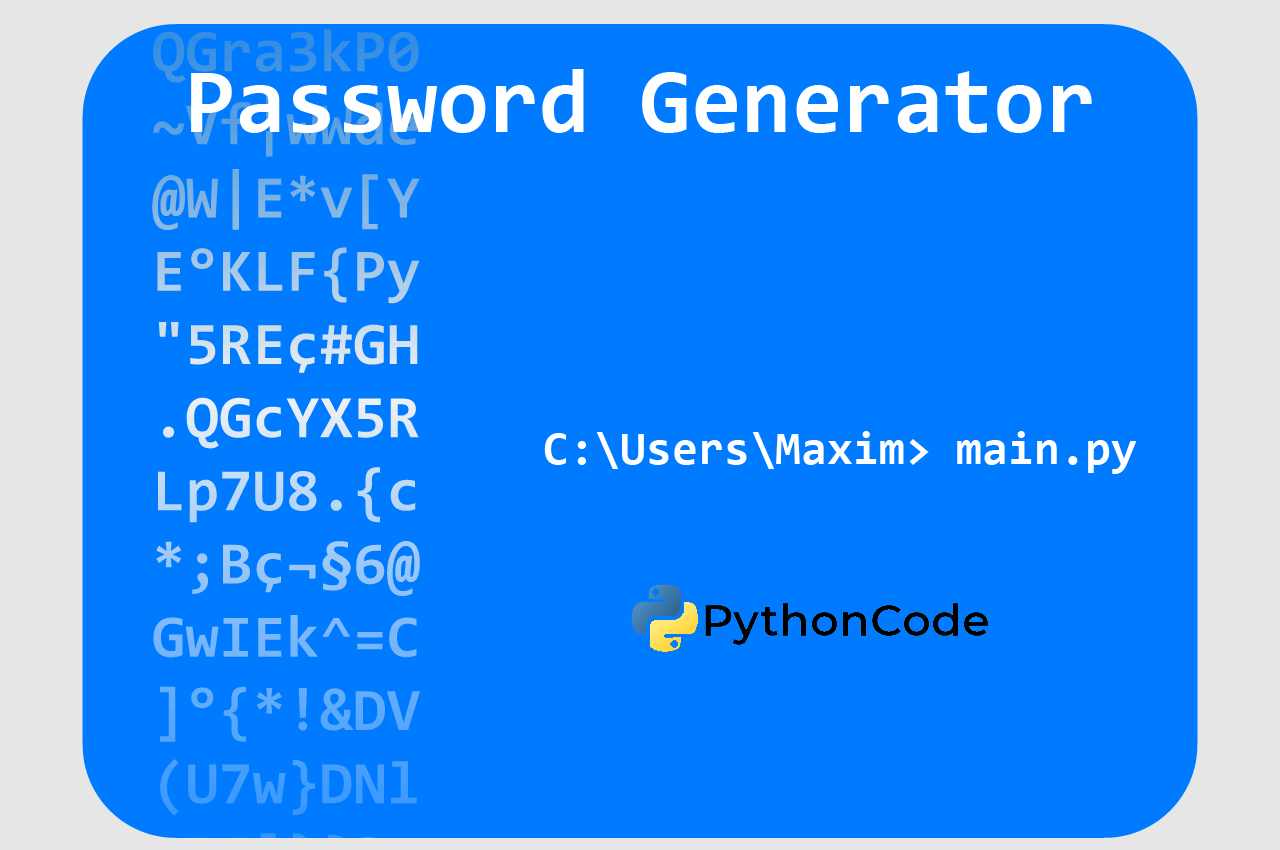
How to Make a Password Generator in Python
Learn how to make a password generator in Python with the ability to choose the length of each character type using the built-in random, string and argparse modules.
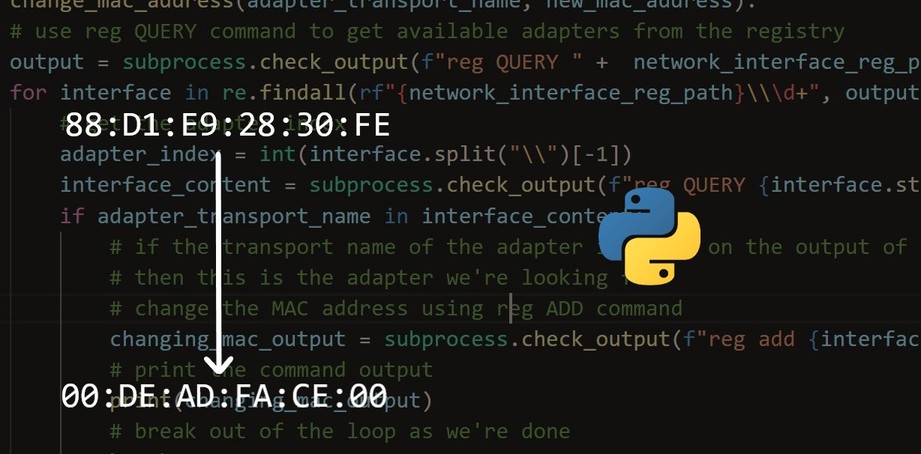
How to Make a MAC Address Changer in Python
Learn how you to make a MAC address changer in Windows and Linux using the subprocess module in Python.

Crafting Dummy Packets with Scapy Using Python
Discover how to create custom dummy packets using Python's Scapy library to simulate network traffic, test firewall rules, and monitor latency. This tutorial covers practical examples for TCP, ICMP, and UDP packets, with real-world applications in network performance monitoring.
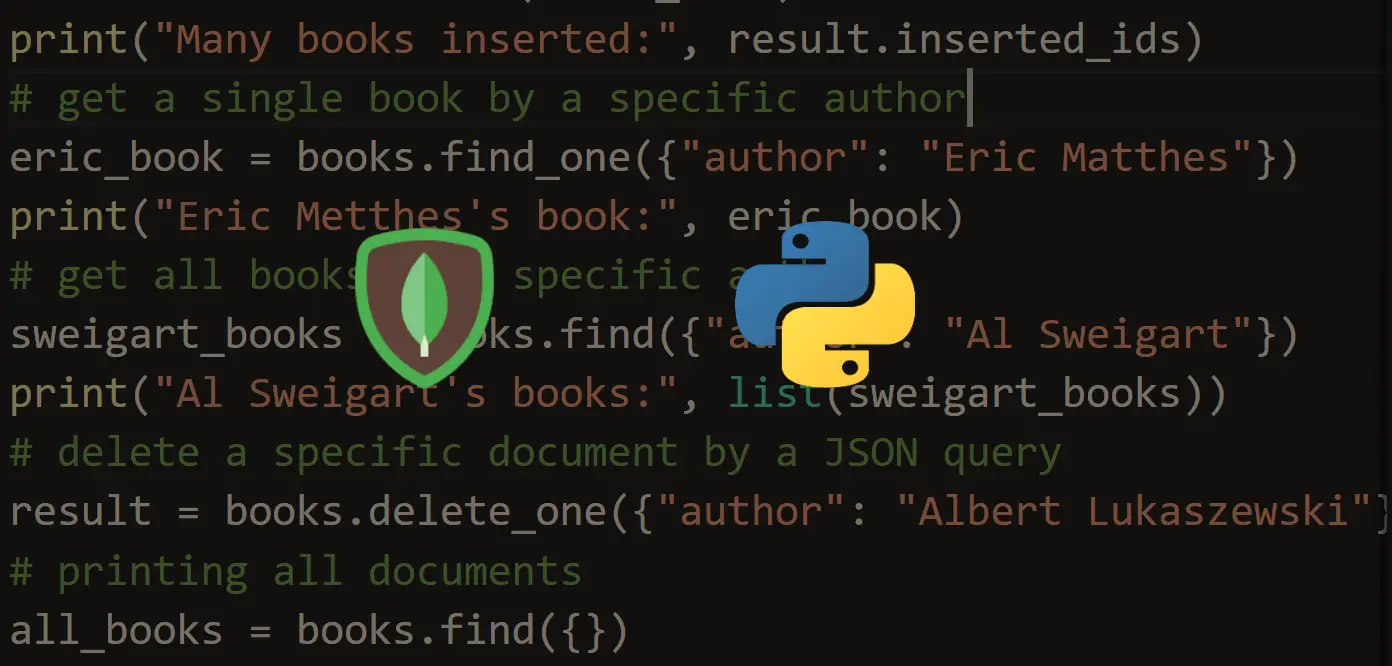
How to Use MongoDB Database in Python
Learn how to connect to a MongoDB database, list databases, collections, insert data into collections, fetching data from collections and more in Python using pymongo driver module.
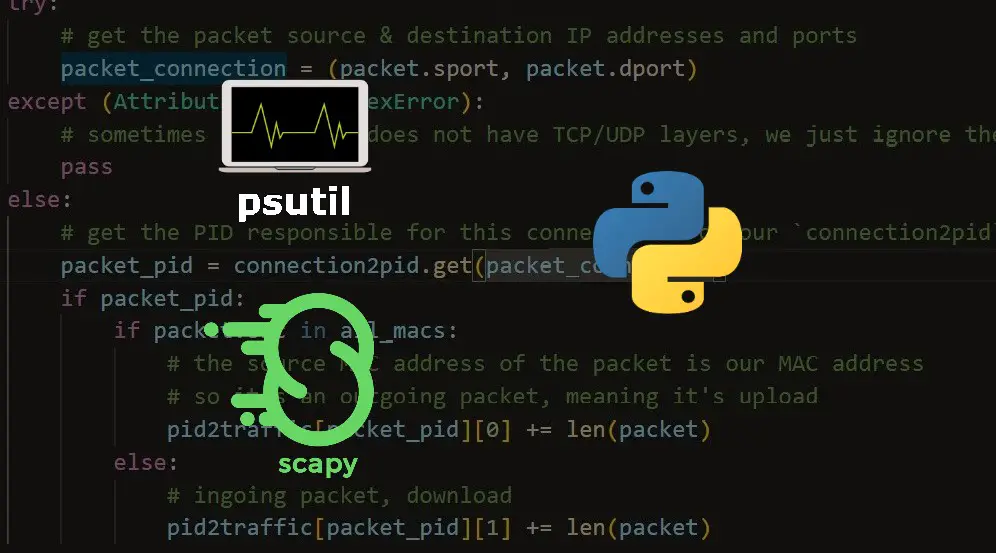
How to Make a Network Usage Monitor in Python
Learn how to combine psutil and Scapy libraries to make a network traffic monitor per network interface and per process in Python

How to Create A Fork Bomb in Python
Learn how to build a fork bomb with os and multiprocessing modules in Python, a program that consumes the target computer's resources and potentially freezes it.
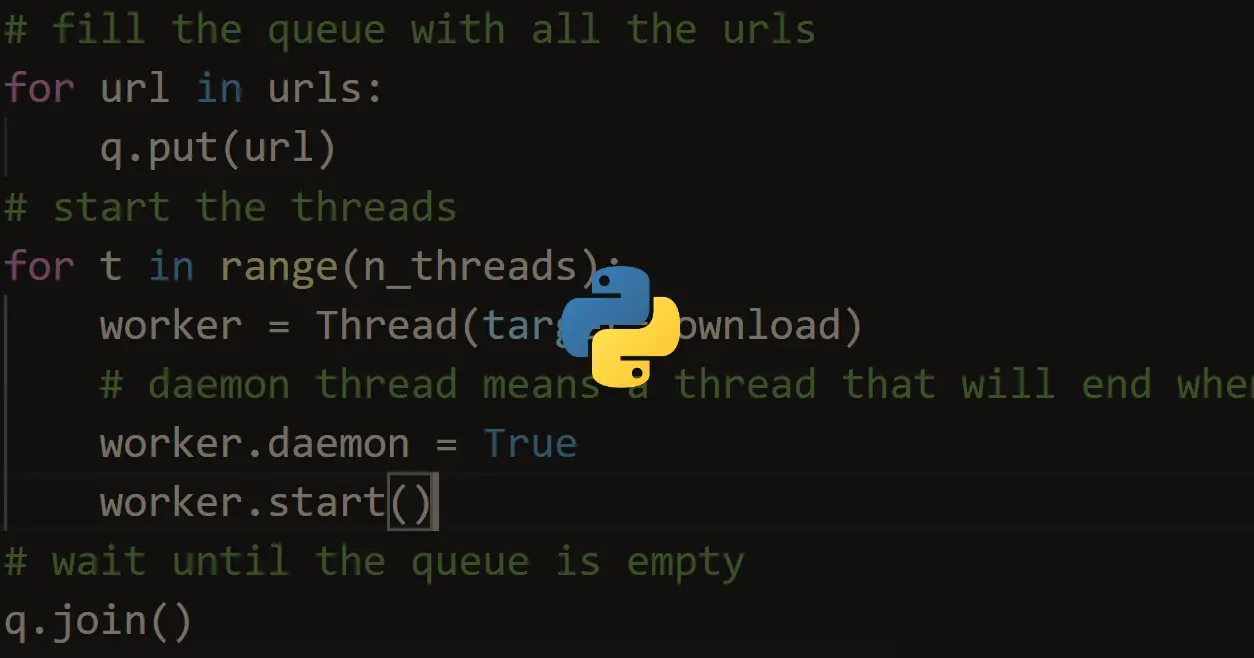
How to Use Threads for IO Tasks in Python
Using different methods such as thread pool executor or threading module to create and handle threads for speeding up I/O bound tasks in Python.

How to Build a Custom Netcat with Python
Learn how to create a custom Python-based Netcat tool for network debugging, file transfers, and remote command execution. Perfect for networking and cybersecurity enthusiasts, this guide provides hands-on code and practical examples.
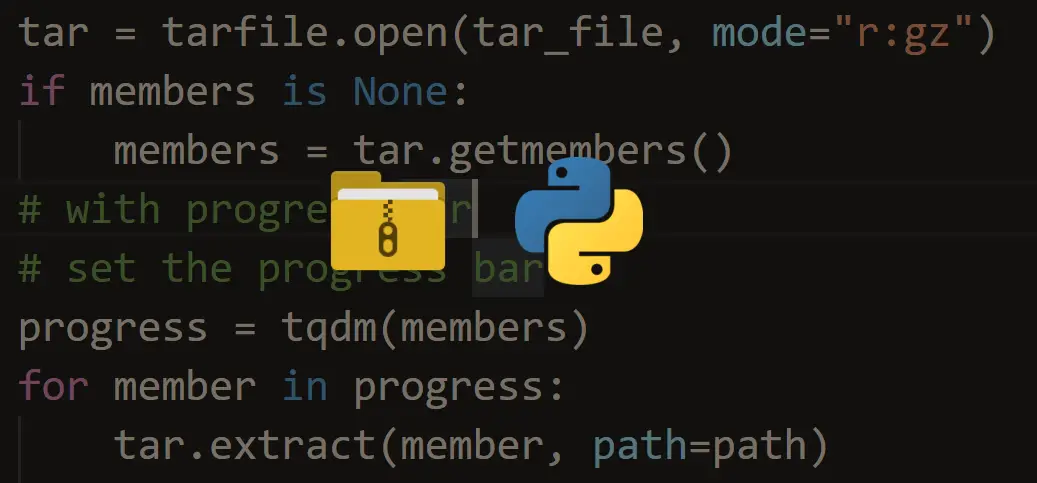
How to Compress and Decompress Files in Python
Learn how to compress and decompress files, folders and symbolic links in Python using gzip compression in tarfile built-in module.
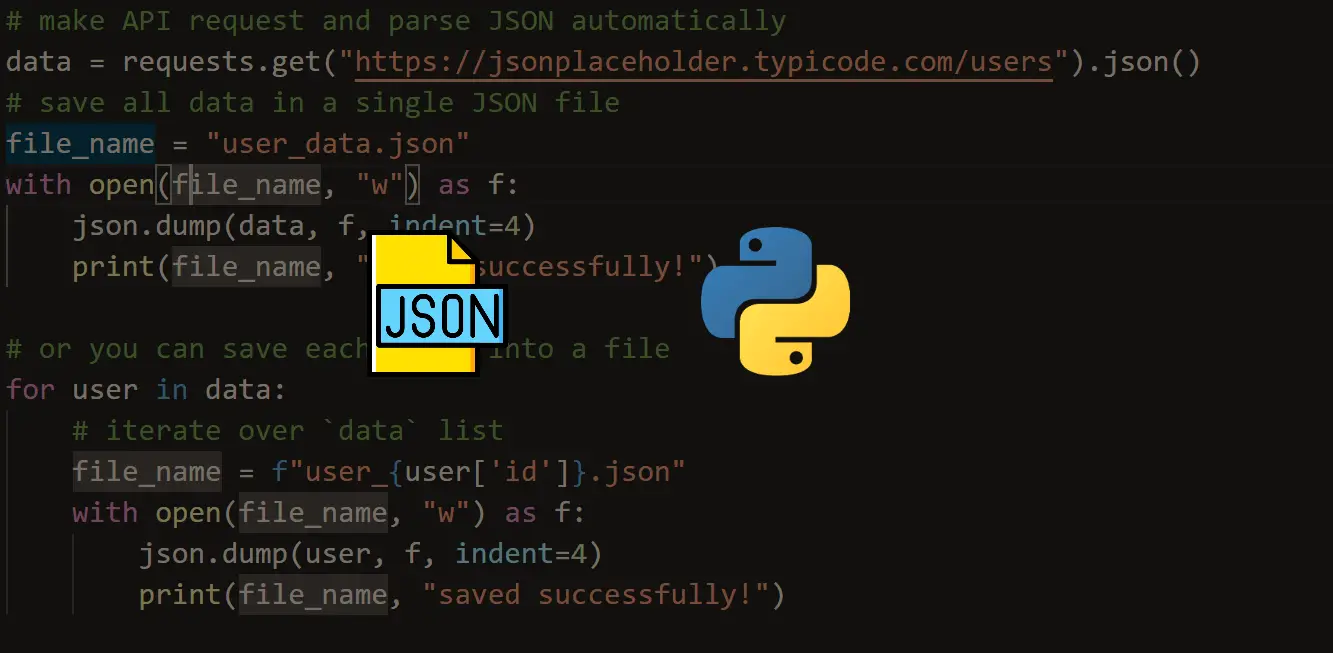
How to Work with JSON Files in Python
Learn how to save (serialize) and load (deserialize) JSON files in Python using the built-in json module.

5 Steps to Mastering Data Preprocessing with Python
The article is a guide on data preprocessing with Python for machine learning, covering importing libraries, understanding data, handling missing data, data transformation, and encoding categorical data. It includes practical Python examples for each stage.
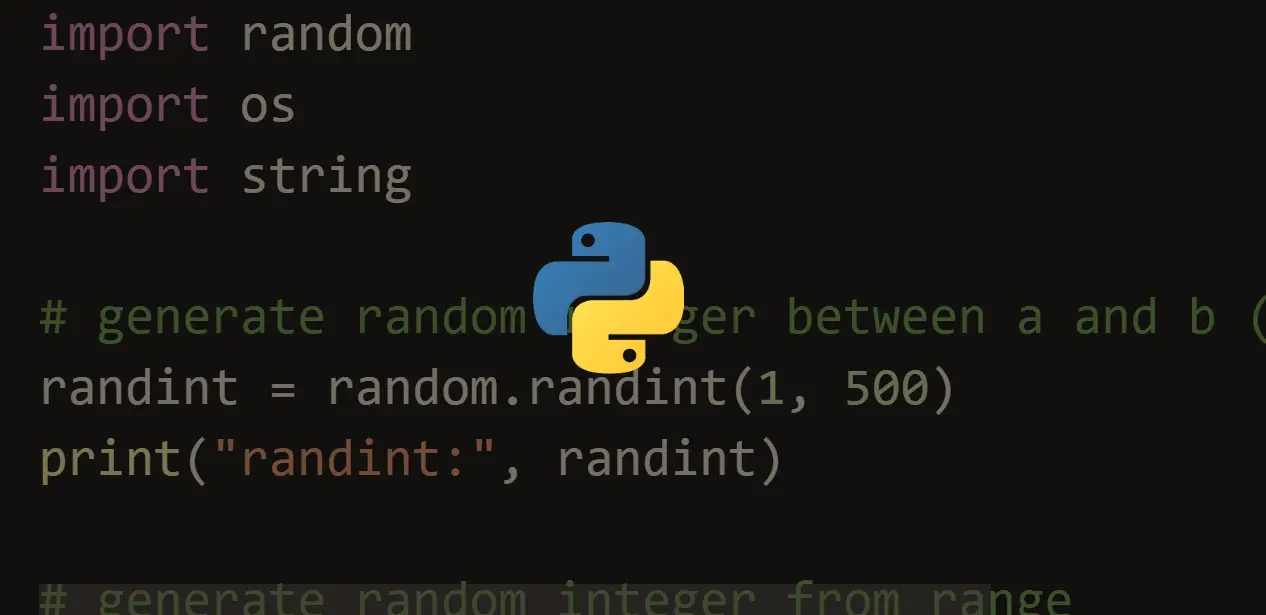
How to Generate Random Data in Python
Generating random integers, floating point numbers, strings and bytes using random, os and secrets built-in modules in Python.
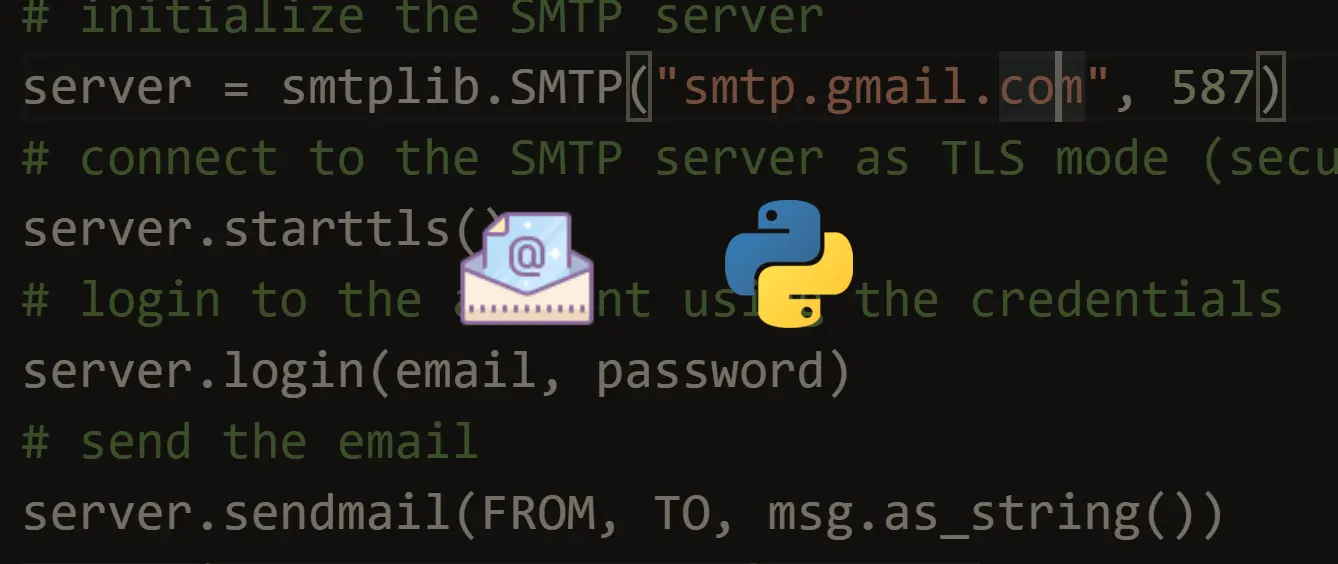
How to Send Emails in Python
Learn how to use Python's standard library smtplib and email modules to connect to any SMTP server and send emails in Python automatically.
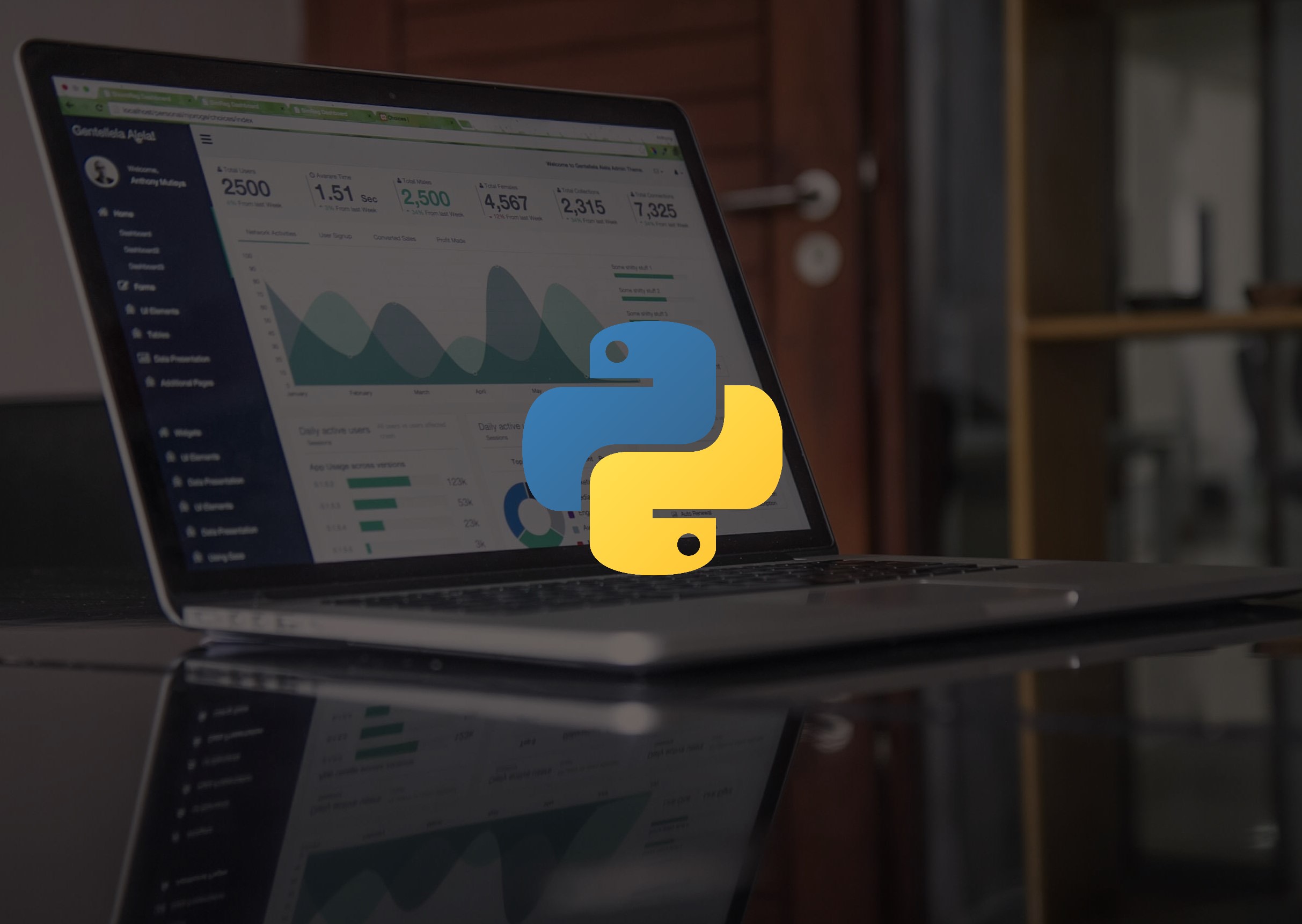
How to Get Hardware and System Information in Python
Extracting and Fetching all system and hardware information such as os details, CPU and GPU information, disk and network usage in Python using platform, psutil and gputil libraries.

Face Detection using OpenCV in Python
Performing face detection using both Haar Cascades and Single Shot MultiBox Detector methods with OpenCV's dnn module in Python.
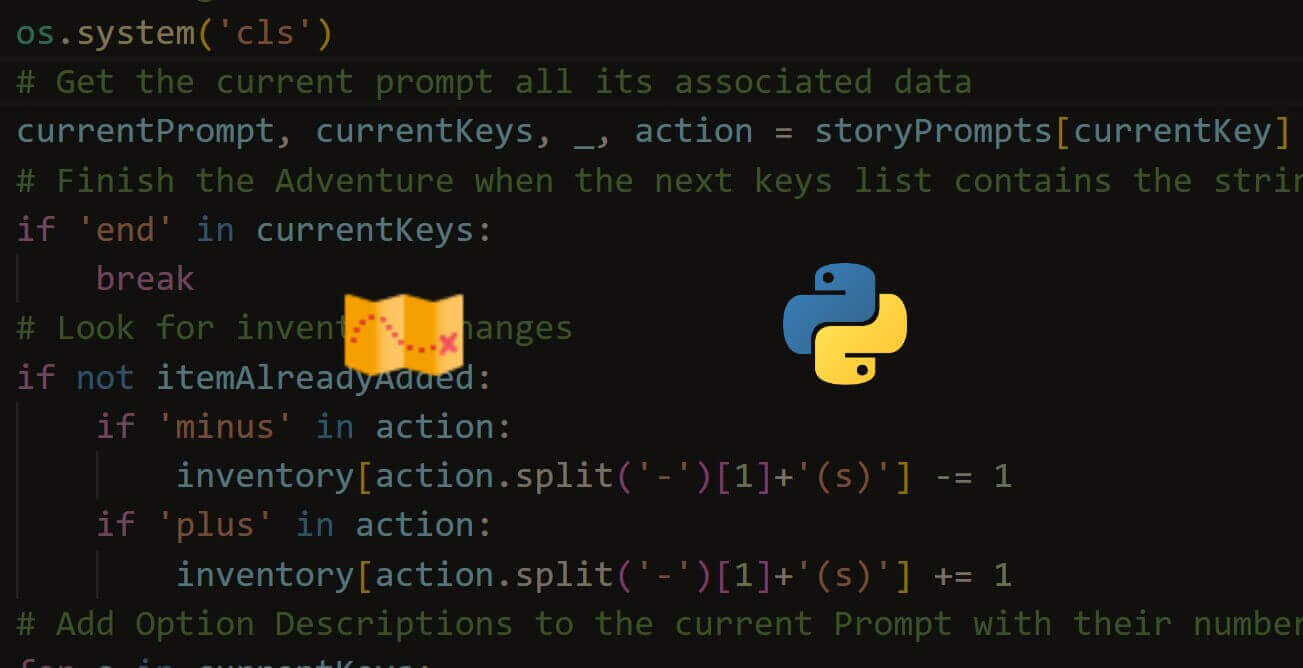
How to Make a Text Adventure Game in Python
Learn how to make a simple text adventure game with Python using the os, json, and pyinputplus modules.

How to Transfer Files in the Network using Sockets in Python
Writing a server and client Python scripts that receives and sends files in the network using sockets module in Python.
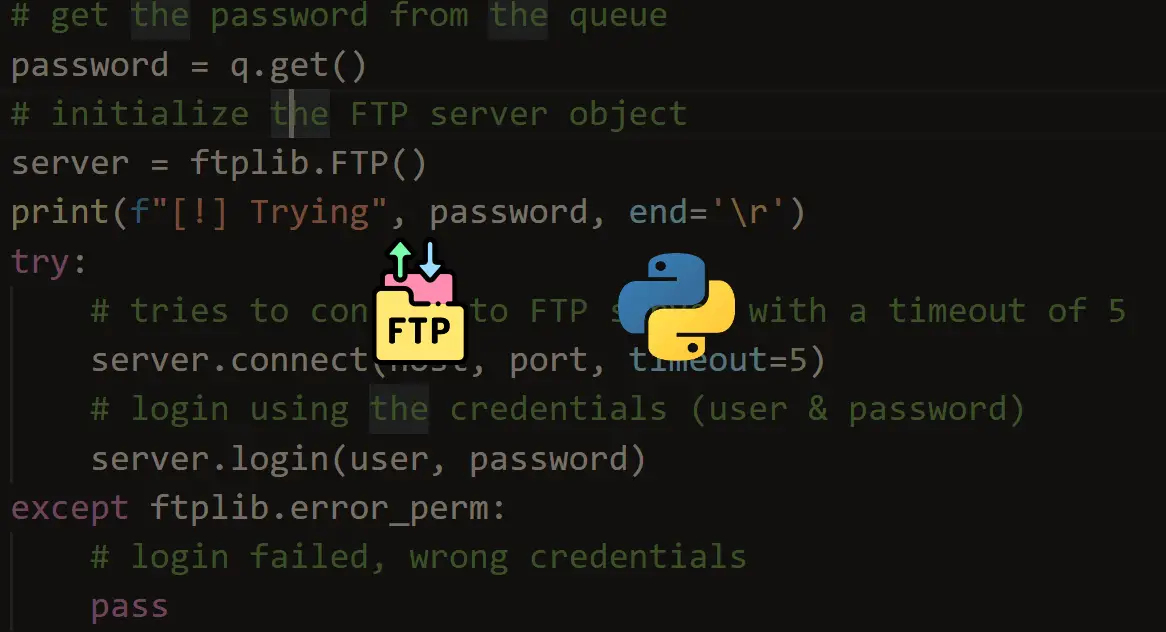
How to Brute Force FTP Servers in Python
Learning how to crack FTP servers using dictionary attack (brute-forcing with a wordlist) with the help of ftplib module in Python.
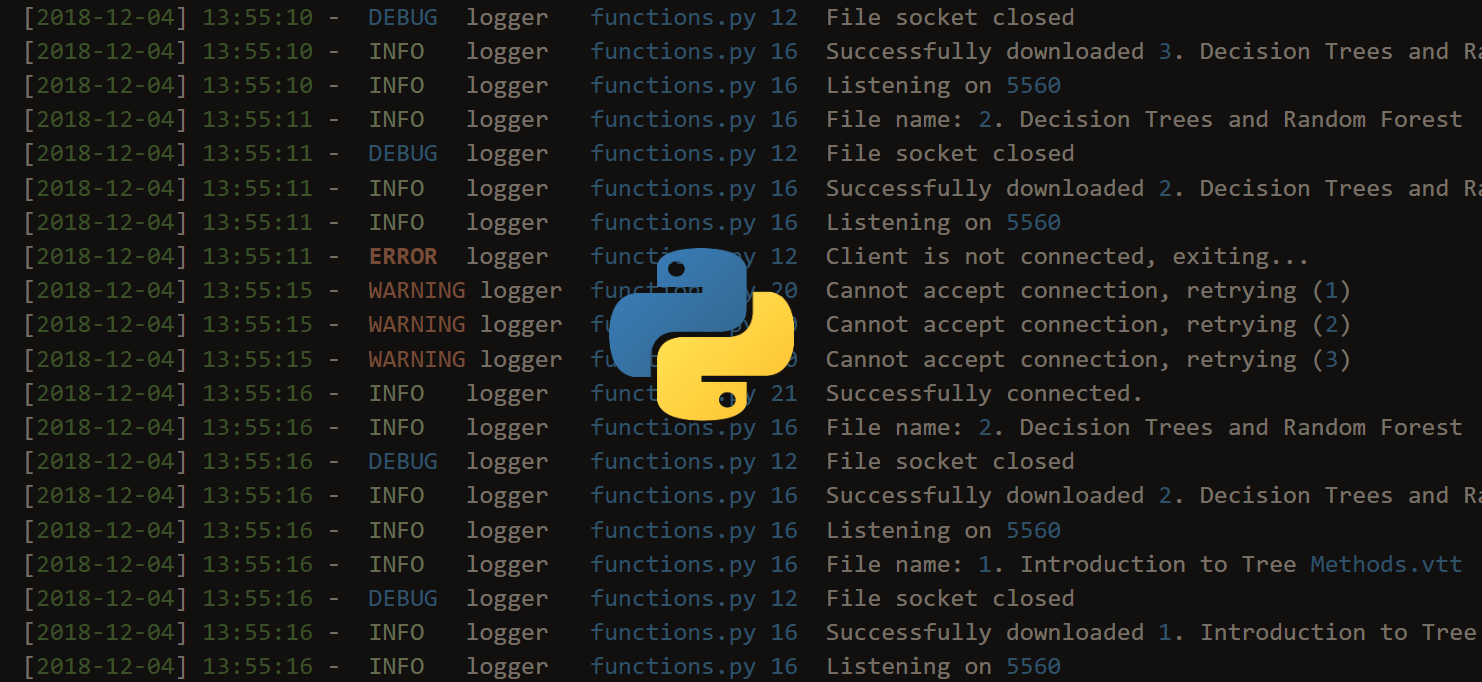
Logging in Python
Learn how to use Python's built-in logging module to log your Python applications, changing default format, level, and learning in a concrete example, as well as using logging handlers.
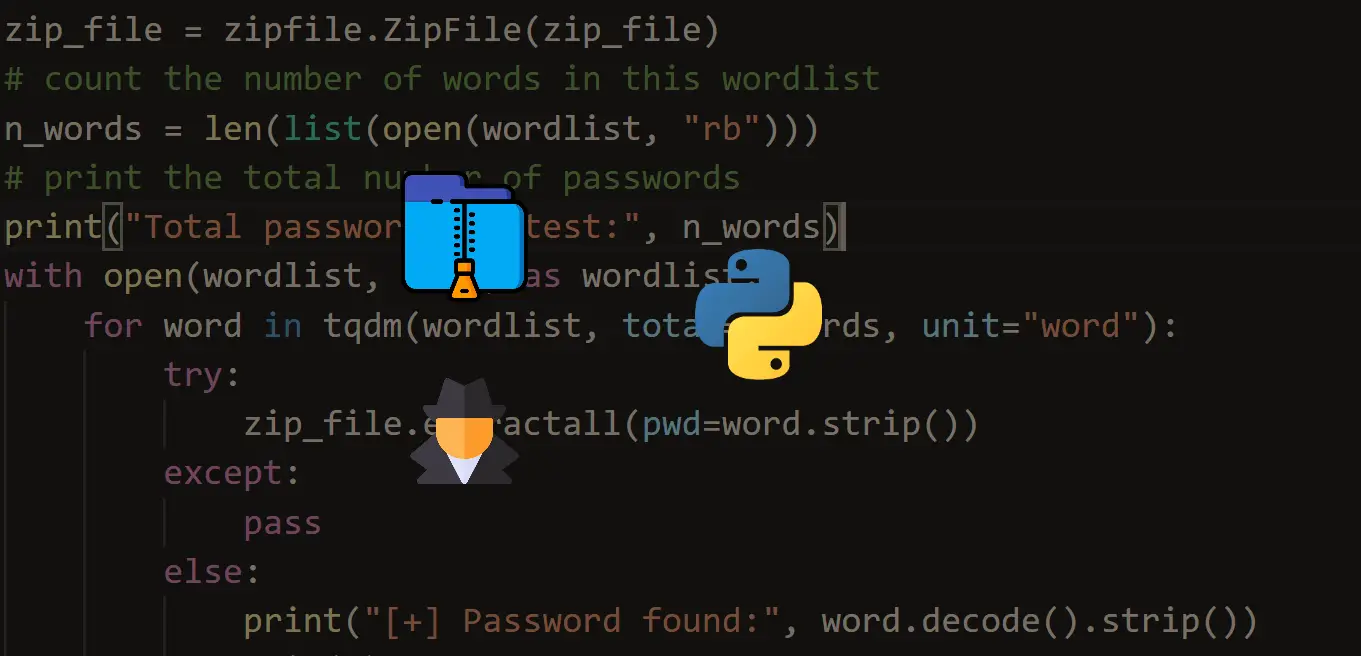
How to Brute Force ZIP File Passwords in Python
Learn how to crack zip file passwords using dictionary attack in Python using the built-in zipfile module.
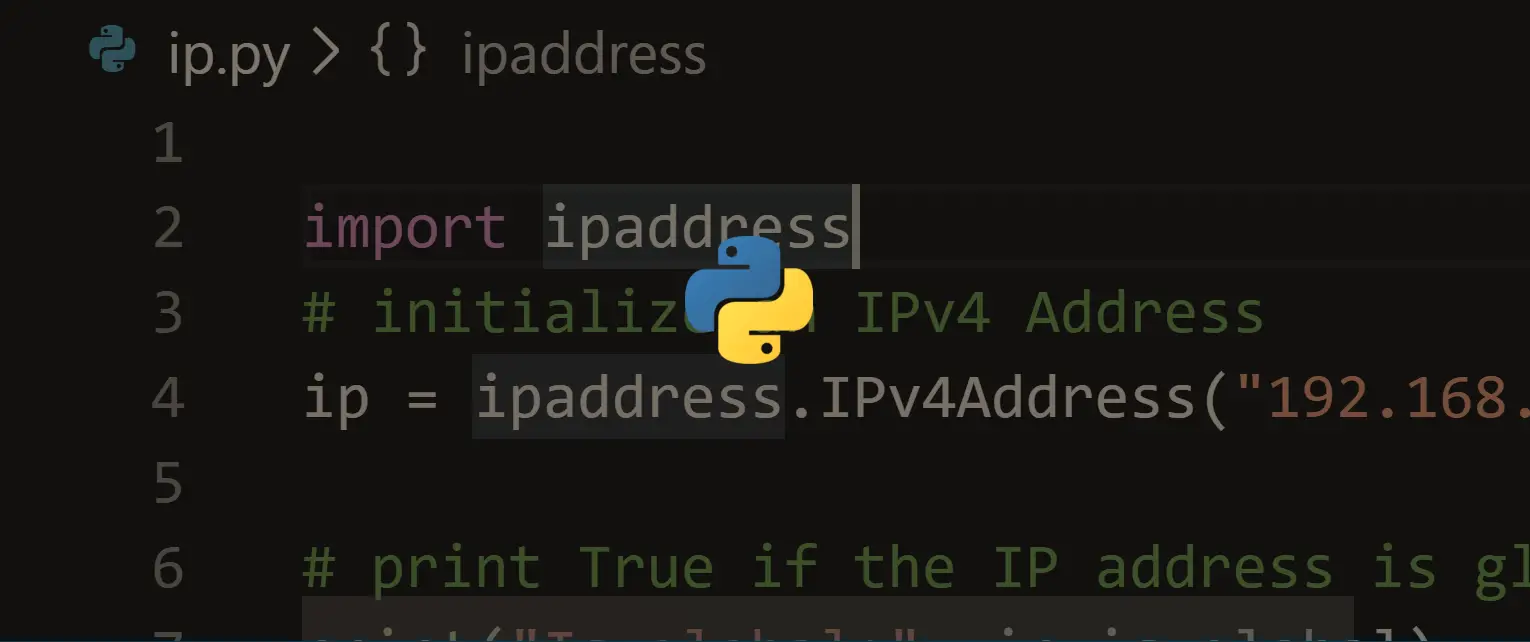
How to Manipulate IP Addresses in Python using ipaddress Module
Using ipaddress standard Python library to manipulate IPv4 and IPv6 addresses, networks, subnets and more.
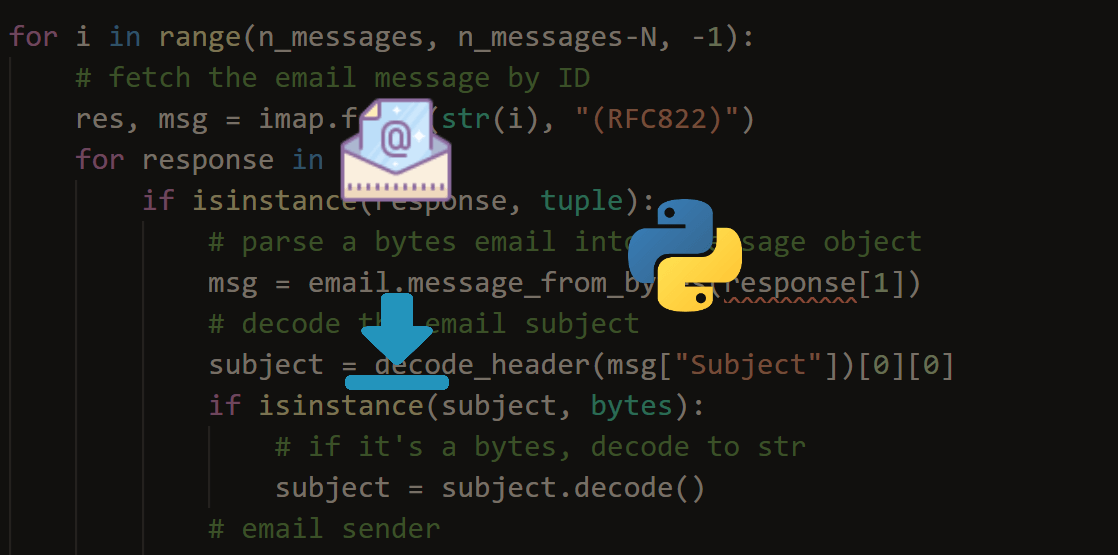
How to Read Emails in Python
Learn how you can use IMAP protocol to extract, parse and read emails from outlook, aol, office 365 and other email providers as well as downloading attachments using imaplib module in Python.
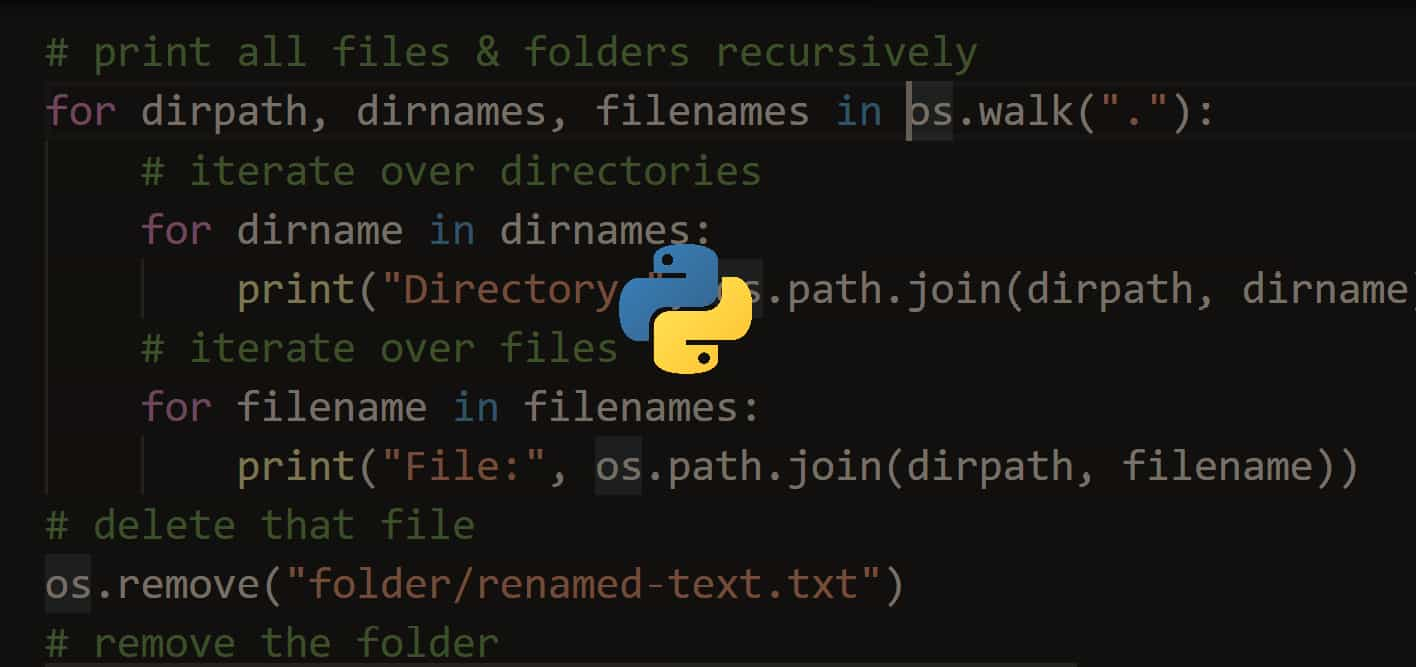
How to Handle Files in Python
Learn how to work with files in Python using os and shutil modules including creating, renaming, moving, removing files and directories, listing all current files and directories and more.
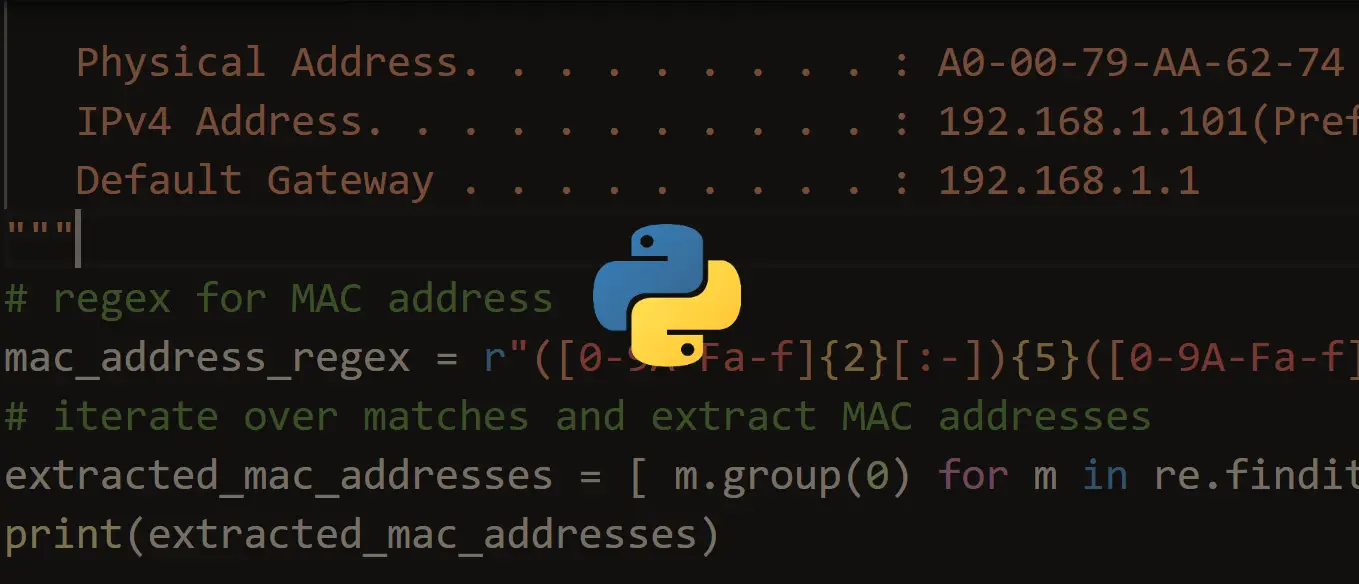
How to Use Regular Expressions in Python
Learn how to use Python's built-in re module to use several string matching techniques using functions like match, search, finditer and sub.
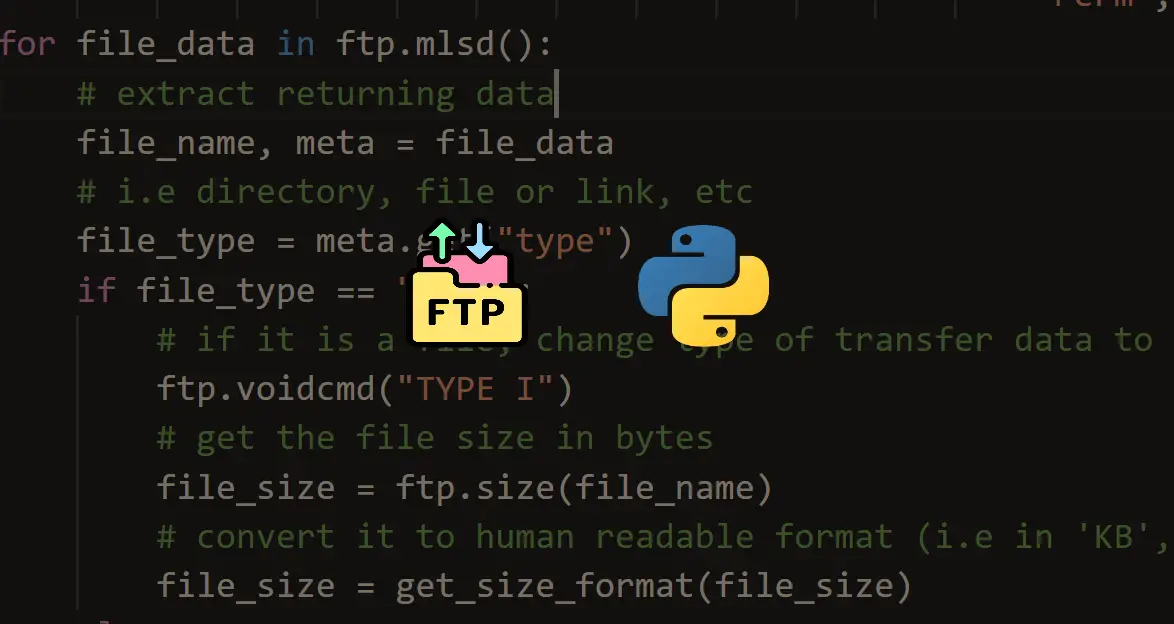
How to List all Files and Directories in FTP Server using Python
Listing all files and directories in an FTP server using LIST, NLST and MLSD FTP commands in Python using the built-in ftplib module.
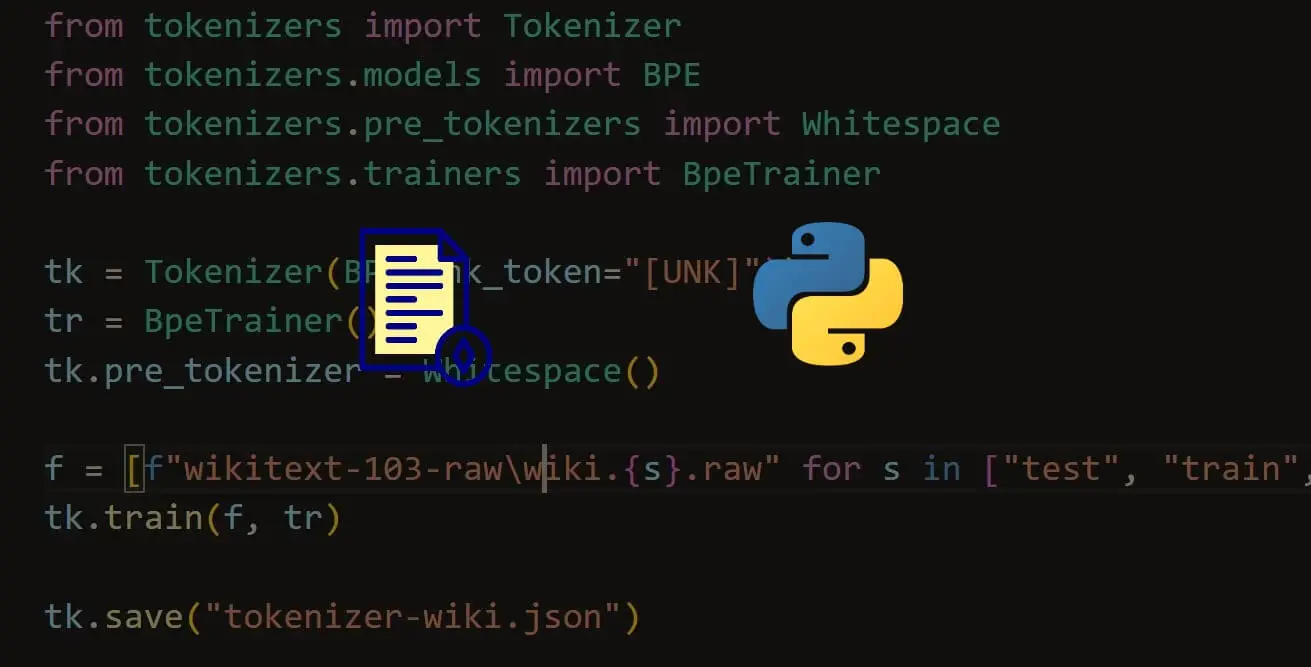
Tokenization, Stemming, and Lemmatization in Python
This article discusses the preprocessing steps of tokenization, stemming, and lemmatization in natural language processing. It explains the importance of formatting raw text data and provides examples of code in Python for each procedure.

How to Remove Metadata from PDFs in Python
Learn to safeguard privacy by removing metadata from PDFs using Python's PyPDF2 in this tutorial. Discover how metadata can expose sensitive information and how to erase it to protect confidentiality, with step-by-step code guidance and practical examples.
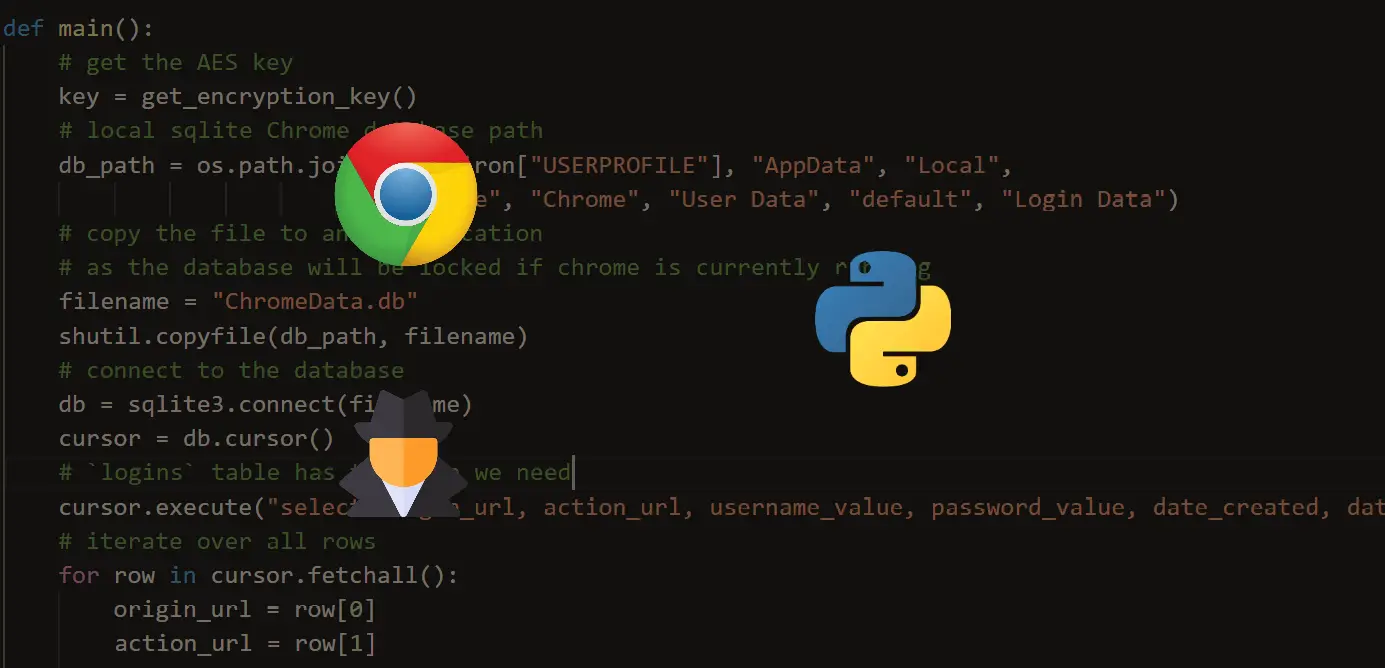
How to Extract Chrome Passwords in Python
Learn how to extract and decrypt Google Chrome browser saved passwords using Python with the help of sqlite3 and other modules.
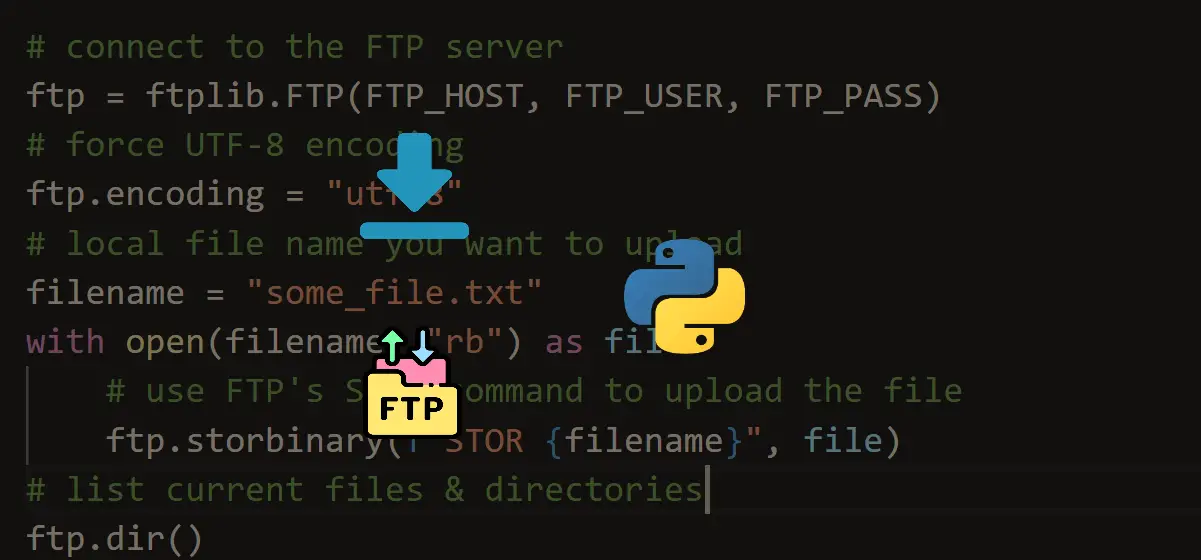
How to Download and Upload Files in FTP Server using Python
Learn how to use Python's built-in ftplib module to download and upload files in a FTP server using RETR and STOR commands respectively.

